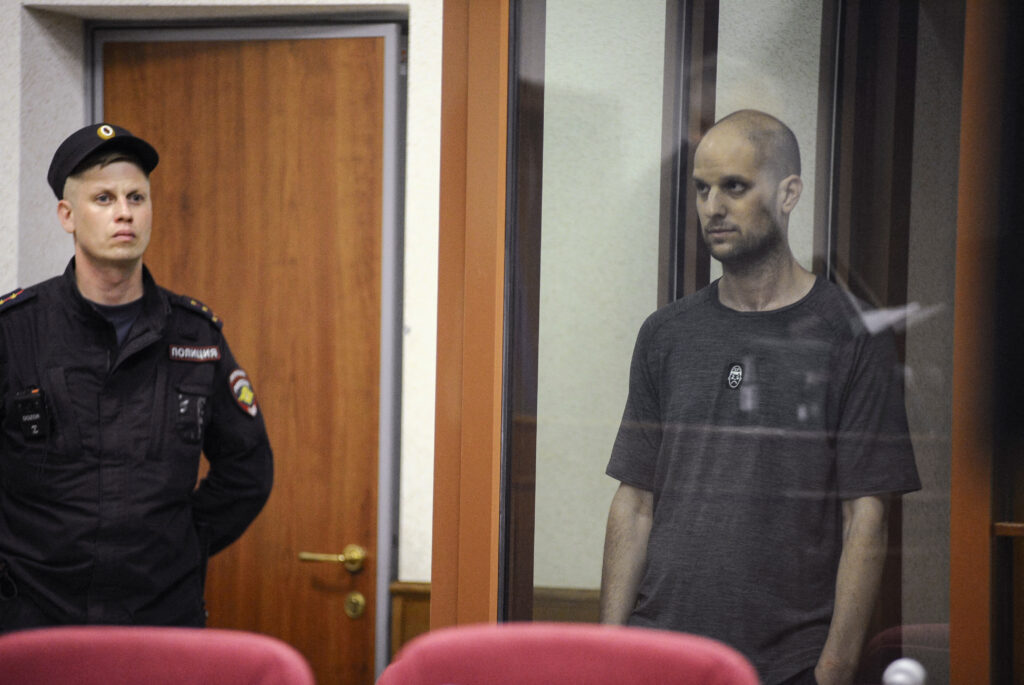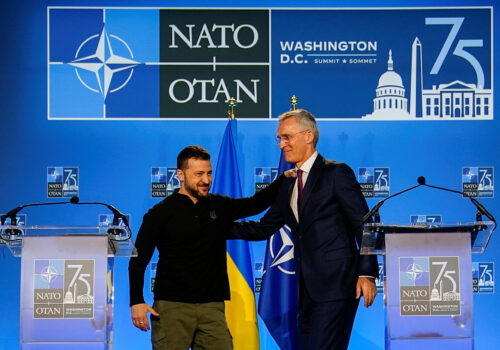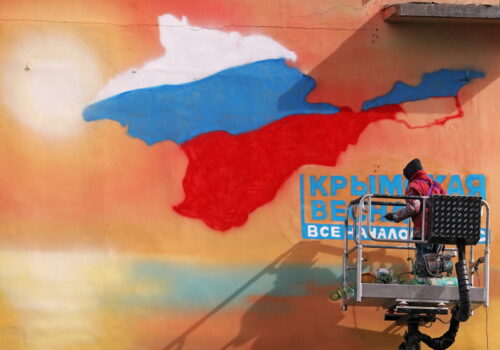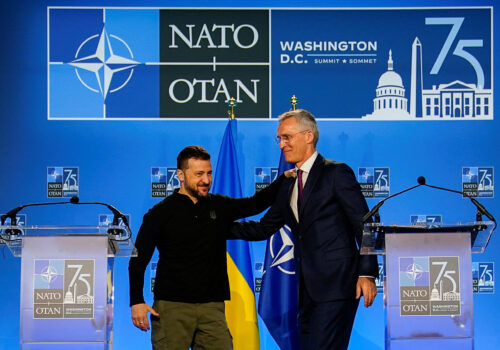
Putin accused of jailing US journalists as ‘bargaining chips’ for prisoner swap
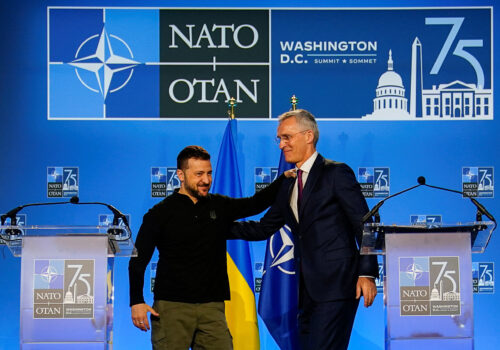
On July 19, Wall Street Journal reporter and US citizen Evan Gershkovich was sentenced to sixteen years in Russian prison on espionage charges. The same day, Radio Free Europe/Radio Liberty reporter Alsu Kurmasheva, a journalist who holds dual American-Russian citizenship, was sentenced to six and a half years by a Russian court for supposedly spreading false information about the Russian military. Both trials took place largely behind closed doors under a veil of secrecy.
Gershkovich is the first US journalist to be convicted in Russia on charges of espionage since the Cold War. So far, the Russian authorities have not provided any credible evidence to support their accusations. Kurmasheva was convicted on a charge frequently used by the Kremlin to suppress unfavorable reporting on the realities of Russia’s war in Ukraine.
The imprisonment of two US journalists marks a new escalation in the Kremlin’s confrontation with the West. Wall Street Journal publisher Almar Latour and editor Emma Tucker released a statement calling Gershkovich’s sentence “a disgraceful, sham conviction.” RFE/RL President and CEO Steve Capus deemed Kurmasheva’s conviction “a mockery of justice.”
US citizens Gershkovich and Kurmasheva are now facing the prospect of long prison sentences in extremely harsh conditions. An AP series published earlier this year described the “physical and psychological pressure, sleep deprivation, insufficient food, heath care that is poor or simply denied” and “dizzying set of arbitrary rules” that the pair are likely to encounter in Russian jails. Both journalists have already spent an extended period in pretrial detention.
Stay updated
As the world watches the Russian invasion of Ukraine unfold, UkraineAlert delivers the best Atlantic Council expert insight and analysis on Ukraine twice a week directly to your inbox.
The Russian authorities have a long record of targeting journalists. These efforts have gained further momentum since February 2022 and the full-scale invasion of Ukraine, with the Kremlin using draconian new legislation to silence anti-war voices and shut down any remaining independent Russian media outlets. In May 2024, the United Nations human rights office reported that the number of journalists imprisoned in Russia had reached an all-time high.
While the Putin regime is notorious for seeking to censor the media, that may not actually be the main motive in this case. Instead, there has been widespread speculation that the Kremlin ultimately aims to use Gershkovich and Kurmasheva as bargaining chips in negotiations with the US to secure the release of Russian citizens currently serving prison sentences in the West.
Putin is no doubt well aware that the United States will go to considerable lengths to free the two American journalists. Following Gershkovich’s conviction, the White House issued a statement that the US government has “no higher priority” than seeking the release and safe return of Gershkovich “and all Americans wrongly detained and held hostage abroad.”
Eurasia Center events
Speculation about a potential prisoner swap has swirled ever since Gershkovich was first detained in 2023. Typically, Russia only engages in prisoner exchanges once suspects have been convicted and sentenced. This has led some analysts to suggest that the relative speed of the two recent trials could indicate the Kremlin’s desire to proceed with an exchange in the near future.
Moscow will likely demand a high price for the release of Gershkovich and Kurmasheva. This may include handing over Vadim Krasikov, a Russian secret service colonel who is currently serving a life sentence in Germany for gunning down a Chechen dissident in a Berlin park in 2019. Sentencing Krasikov in 2021, a Berlin court called the killing “a state-ordered murder.”
US Senate Foreign Relations Chair Ben Cardin said Gershkovich’s trial and conviction were “stark reminders of the lengths to which tyrants like Putin will leverage innocent people as bargaining chips, stifle free speech, and suppress the truth.” While many now expect a prisoner swap to take place sooner rather than later, the targeting of US journalists in this manner highlights the Kremlin’s retreat from international norms and underlines the potential dangers facing any Western nationals who choose to visit Putin’s Russia.
Mercedes Sapuppo is a program assistant at the Atlantic Council’s Eurasia Center.
Further reading
The views expressed in UkraineAlert are solely those of the authors and do not necessarily reflect the views of the Atlantic Council, its staff, or its supporters.

The Eurasia Center’s mission is to enhance transatlantic cooperation in promoting stability, democratic values and prosperity in Eurasia, from Eastern Europe and Turkey in the West to the Caucasus, Russia and Central Asia in the East.
Follow us on social media
and support our work
Image: Wall Street Journal reporter Evan Gershkovich, who faces charges of espionage, stands inside an enclosure for defendants as he attends a court hearing in Yekaterinburg, Russia July 19, 2024. (REUTERS/Dmitry Chasovitin)
